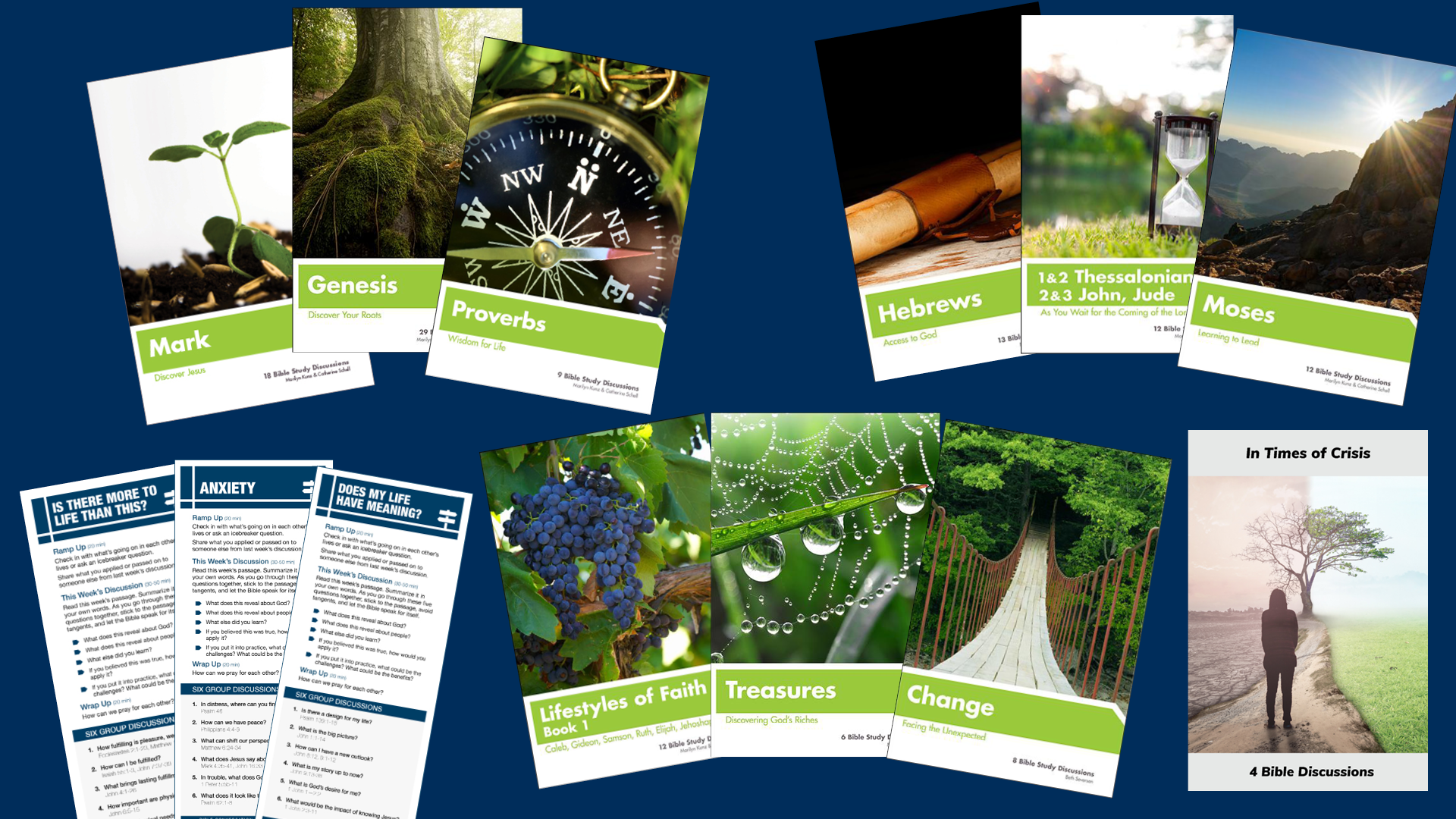Sharing the Gospel Today
| By Fran Goodrich
Many Christians today have a passion for sharing their faith in Jesus Christ and the truth of the Bible. But our culture is increasingly post-Christian, divisive, and skeptical of the “truth” anyone else declares.
So, how can we share the timeless Good News of Jesus in a way that people can relate to in our culture today?
If you want the answer I’m passionate about, you can click and go right to it! But if you want to look more deeply at the challenge we face and see how our approach to evangelism needs to shift today, read on.
A “Post-Christian” Mindset
The Barna Group researches trends related to faith and culture in the U.S. These are some of the factors they use to identify a post-Christian mindset in people they survey:
- Do not believe in God
- Identify as atheist or agnostic
- Disagree that faith is important in their lives
- Have not prayed to God in the last year
- Have never made a commitment to Jesus
- Disagree that the Bible is accurate
In a culture that is increasingly post-Christian, you can’t just quote verses from Scripture and expect people to take the Bible as the authority for what is true. So how can Christians successfully share the gospel?
5 Shifts in How We Share the Gospel
Carey Nieuwhof, former lawyer, pastor, author and leader of church leaders around the world, recently wrote about 5 Important Ways Evangelism Is Shifting in our Post-Christian World. They are:
- Embracing the question is as important as giving an answer
- Steering the conversation is better than pushing for a conclusion
- Being open is more effective than being certain
- Arrogance, smugness, and superiority are dead
- The timeline is longer
Embracing these five shifts in evangelism is crucial to being effective. And, interestingly, they remind me of the way of Jesus. Let’s examine each one.
1. Embracing the question is as important as giving an answer
In years past, evangelism training focused on answering questions. But what if we stopped for a while at the question?
Noted educator Neil Postman says about questions: “All our knowledge results from questions . . . question-asking is our most important intellectual tool” (Teaching as a Conserving Activity, p. 154).
Postman points out that a badly formed question produces no knowledge and no understanding. Skillfully formed, a question leads to new facts, new perspectives, new ideas.
Imagine this scenario: Someone you know says, “I don’t believe in God.” What if instead of giving your reasons for God, you respond, “It’s interesting that you don’t believe in God. Would you tell me more about that?” or “Tell me about the God you don’t believe in.”
Did you know that in the Gospels Jesus was asked 183 questions, but he only answered three of them? Instead of answering, he asked 307 questions back! If anyone didn’t need to ask a question, it was Jesus. Why do you think he did that?
Good questions can help you understand much more about someone and can help them process what they believe. Knowing where they are coming from will be very helpful in wisely forming an answer when the time comes that they are open to discussion.
2. Steering the conversation is better than pushing for a conclusion
This involves a depth of listening that is rare. By first listening to another’s point of view, you’ll be able to ask honest, curious questions that help him or her to think through what they believe and why they believe it.
In 2019 the Barna Group explored the top qualities non-Christians and lapsed Christians look for in a person with whom they would want to talk about faith matters. The top qualities were “listening without judgment” (62%), and “not forcing a conclusion” (50%).
However, only a minority of those surveyed said that the Christians they know possess these qualities.
A Christian who listens well builds a foundation of trust and can discover questions about God that can be explored in authentic conversations.
Jesus was labeled “a friend of sinners” precisely because he spent time with people in everyday settings. People felt how much he cared for them, and he never forced someone to follow him.
A poem by John T. Wood reveals how important it is that we approach people like Jesus did. (From Listening for Heaven’s Sake, p 28.)
POEM FOR EVERYMAN
i will present you
parts
of
my
self
slowly
if you are patient and tender.
i will open drawers
that mostly stay closed
and bring out places and people and things
sounds and smells, loves and frustrations, hopes and sadnesses,
bits and pieces of three decades of life
that have been grabbed off
in chunks
and found lying in my hands.
they have eaten
their way into
my heart.
altogether – you or i will never see them –
they are me.
if you regard them lightly,
deny that they are important
or worse, judge them
i will quietly slowly,
begin to wrap them up,
in small pieces of velvet,
like worn silver and gold jewelry,
tuck them away
in a small wooden chest of drawers
and close.
The easiest place I’ve found for helping people grow receptive to truth is in a group set up to be safe for self-discovery and honesty about spiritual beliefs. I learned how to start a group like this in training from Q Place. (Learn more.)
3. Being open is more effective than being certain
Not that our faith is uncertain! It means more to me all the time that the truth of the Bible has stood the test of time for millennia—especially in light of the often-contradictory media stories that are prevalent today. We do want to be confident in Scripture and in our relationship with Christ.
However, if we dominate conversations with bold assertions, we’re going to shut people down rather than help them to open up.
As Carey Nieuwhof explains, “The person who is always certain thinks they’re being convincing when the opposite is often true. You’re less convincing because being perpetually certain makes you appear anti-intellectual, closed and a bit arrogant.” (See #4.) “If you’re open to people and their views, they’ll be more open to you.”
4. Arrogance, smugness, and superiority are dead
Since when did any of those qualities draw people? (Unless they draw others with the same arrogance, smugness, and superiority.) These sins are repelling, especially to young adults!
Here is our mandate: “Always be humble, gentle, and patient, accepting each other in love” (Ephesians 4:2 NCV).
5. The timeline is longer
Used to be, we Christians thought we could simply explain the way to salvation with a tract and people would say “The Sinner’s Prayer” with us.
One woman whom I coached to start a Q Place group asked me, “So, when do people in your group become Christians? How long does it take?” We want to control this process. But we can’t. It goes back to wanting to push towards a conclusion. But that only drives people away.
In one of my Q Place groups, a Christian was frustrated with how long a non-Christian was taking to believe in Jesus. The non-Christian came to my husband and said perhaps he should quit the group because he knew his questions and process irritated one of the Christians! My husband assured him that the group was for him and that he shouldn’t quit. (And not long after that, that one Christian chose to drop out.)
How long did it take you to turn to Jesus? And then how long did it take you to fully follow him?
It has been estimated that it takes 25 people to introduce a person to Christ. The first person thinks he did nothing. And the last person thinks he did everything.
How will you adapt to effectively share the gospel in our time, in your place?
Fran Goodrich
Q Place National Field Leader
Q Place equips Christians to start groups where everyone can process what they believe and see the message of the Bible for themselves. Learn more about starting a group for seekers and how you can share your faith in a way that gives people space to make discoveries and come to know Jesus! (Want to see upcoming training options?)
Recent Posts

Resurrection: What Is the Best Evidence?
What would cause someone to believe Jesus bodily rose from the dead? And what difference does it make? At first “Dan” told our Q Place group that...
Read More >
The (Surprising) Benefits of the Inductive Approach
When Pastor “Ted” and his wife, “Angie,” came to Q Place Coaching, they were eager to learn how to start small groups for people who...
Read More >
How to Find a Great Bible Study Guide
The Bible is the best-seller of all time, bar none. And groups that study the Bible together can be extremely interactive, thought-provoking, and...
Read More >
How to Find a Bible Discussion Guide to Fit Your Group
Looking for any of Q Place's Bible Discussion Guides? Find the whole list here, with links to our web store where you can order them.
Read More >
When Your Group Has Senior Citizens
At first our group didn’t know about Sarah’s hearing loss, but it didn’t take long for us to notice her phone buzzing and delivering feedback...
Read More >
The Art of Loving People in Your Path
Every year on Valentine’s Day, Brenda follows her typical path of running errands, but the day takes on a new dimension as she gives small...
Read More >